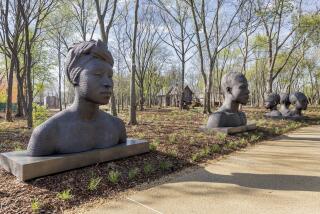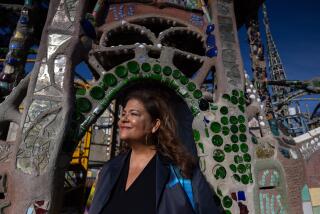After violence in Charlottesville, cities rush to take down monuments as white supremacists gear up to fight

Here are some of the Confederate monuments that were removed this year. (Aug 15, 2017) (Sign up for our free video newsletter here http://bit.ly/2n6VKPR)
The thousands of demonstrators have left Charlottesville, Va. The bronze statue of Confederate Gen. Robert E. Lee, around which the protests were focused, remained standing. A memorial service was being planned for the woman who was killed, and many of the 19 people injured remained in the hospital.
And as the city began to recover from the violence of this past weekend, both sides declared victory.
To the white supremacists who gathered from across the country, the havoc in the Virginia college town and the international attention it earned them marked a win. To the counter-protesters, widespread acknowledgment of the threat posed by racism — evident in television images of Nazi symbols and other blatant bigotry — was proof they had prevailed.
It remains unclear what will happen to the racist movement that has been energized by the election of President Trump and was laid out for all to see in Charlottesville. But one thing seems certain: The fighting is not over. Both sides are gearing up for more.
White nationalists and pro-Confederate groups quickly announced rallies and speaking events in Virginia, Texas and beyond, gaining throngs of online supporters while the people who live in those places are already taking to the streets to warn them to stay away.
In Kentucky and Maryland, city officials promised to swiftly tear down Confederate monuments after years of debates, drawing cheers from supporters but also galvanizing the white supremacists and fanning fears of more protests and more violence.
“These conflicts are growing, not diminishing,” said Brian Levin, director of the Center for the Study of Hate and Extremism at Cal State San Bernardino. “A wedge has been turned into a battering ram by emboldened white nationalists.”

Hours after the Charlottesville rally on Saturday, where bodies flew as a man plowed a car into a crowd on a downtown street, Texas resident Preston Wiginton announced a “White Lives Matter” rally in College Station in September. He said he wanted to carry on the campaign launched by those in Virginia.
“Today Charlottesville tomorrow Texas A&M,” said a news release issued by Wiginton, who has been identified as a white supremacist by civil rights groups. He vowed to fight “the liberal agenda of white guilt and white genocide.”
On Monday, the university canceled the rally, citing safety concerns. The event had been advertised as featuring Richard Spencer, a prominent white nationalist who promoted the Charlottesville rally.
Wiginton said he would sue, and white nationalists across the U.S. defended his cause.
The University of Florida said the same day that it was considering a request from Spencer to give a talk on campus on Sept. 12. Spencer has also said he will to return Charlottesville.
While white nationalists fought for speaking engagements, monuments came down.
Residents of Gainesville, Fla., wiped away tears of joy on Monday as workers used jackhammers to remove a Confederate statue nicknamed “Old Joe” that stood in front of a county building. The removal was scheduled last month, and the statue now sits in a private cemetery after the United Daughters of the Confederacy, a group made up of women who trace their ancestry to Southern Civil War figures, volunteered to take it.
The same day, demonstrators in Durham, N.C., cheered as they used a lasso to topple a 15-foot statue of a Confederate soldier and started kicking its head.
“No cops, no KKK, no fascist USA!” and “We are the revolution!” they chanted.
The statue had stood since 1924 with a dedication to “the boys who wore the gray.”
In Atlanta, protesters spray-painted a statue of a Confederate soldier and broke off a piece. Dozens of people gathered in Nashville and hundreds more in San Antonio to protest local monuments.
The gatherings followed formal announcements in at least five cities that monuments would be taken down.
On Sunday, Baltimore City Councilman Brandon Scott, who is black and a Democrat, took to Twitter to call for the “immediate destruction” of all four Confederate monuments in the city.
“Everywhere in this country, we have to remove these monuments and melt them down so nobody can ever idolize them again and wreak this havoc,” he said in an interview.
After Scott’s tweet went viral, Democratic Baltimore Mayor Catherine Pugh lent her support to removing the monuments, including those of Gens. Lee and Thomas. J. “Stonewall” Jackson.
In Lexington, Ky., the mayor shared a similar view.
“These moral moments require everyone to take a stand,” said Jim Gray, a Democrat, who tweeted Saturday that he would move to tear down two Confederate statues from the grounds of a 19th century courthouse, an idea city officials first broached two years ago.
“There is no time to wait for tomorrow because tomorrow never comes,” Gray said in an interview.
But other groups were ready to fight.
“If the American people don’t speak up, the majority of these monuments will be gone,” said Kirk Lyons, an attorney at the Southern Legal Resource Center, a North Carolina-based pro-Confederate group. Lyons said his group is ready to file lawsuits against monument removals.
“Confederate monuments are just a speed bump for these people. They will go after Confederates first.… It’s about Thomas Jefferson, George Washington next,” said Lyons, who said he was “a Christian attorney of Southern ancestry” and rejected the label “white supremacist.”
Lyons said he was considering driving to Richmond, Va., to join a rally next month in support of a Robert E. Lee statue on downtown’s Monument Avenue. A Confederate heritage group is still seeking a permit to hold the event.
A city commission is studying what to do with statues on the historic street popular with tourists — such as adding more historical context on the Civil War or placing monuments nearby paying tribute to black figures.
Mayor Levar Stoney, who has rejected the idea of removing statues, spoke to reporters Monday about the controversy after a groundbreaking ceremony for the American Civil War Museum. He said he wanted the city to acknowledge “the complete truth” about its history as the Confederate capital.
“At the end of the day, those statues are offensive to me, very offensive to me,” said Stoney, who is black. “But you know what I’m going to focus my time on? Destroying vestiges of Jim Crow where they live in our city — public housing, public education, you name it.”
Times staffer Raoul Rañoa contributed reporting from Los Angeles.
ALSO
A guide to some of the far-right symbols seen in Charlottesville
Google and GoDaddy boot neo-Nazi website that mocked the woman slain in Charlottesville
Hip-hop artist recalls his beating in Charlottesville: ‘They were trying to kill me out there’
More to Read
Sign up for Essential California
The most important California stories and recommendations in your inbox every morning.
You may occasionally receive promotional content from the Los Angeles Times.











